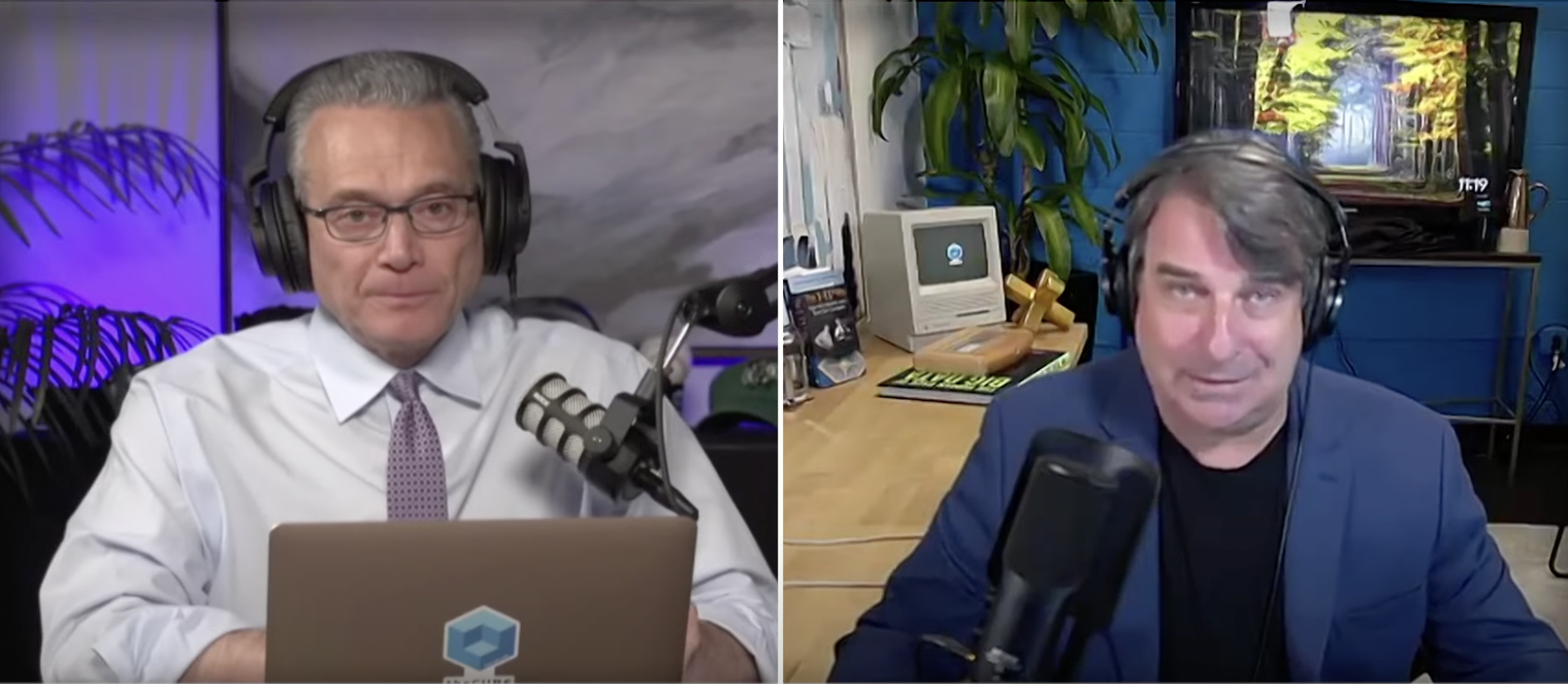 AI
AI
 AI
AI
 AI
AI
This week, the Federal Reserve raised interest rates to their highest level in 16 years but did signal that it could be done for now.
Oil prices posted their third straight weekly fall, while the most recent jobs report saw unemployment going down. Meanwhile, some companies posted better-than-expected earnings numbers and new trends are emerging.
All that news came as specific examples of cloud repatriation are coming to light, as theCUBE industry analyst Dave Vellante (pictured, left) noted in a recent Breaking Analysis.
But the economy is challenging right now, and people don’t have great visibility, Vellante noted on the latest episode of theCUBE podcast. What’s happening is that intelligent chief financial officers and chief executive officers in tech were very conservative.
“What’s happening is that earnings estimates came down, and now they’re beating very conservative earnings estimates,” Vellante said. “This could be a little bit of fool’s gold, but with generative AI, the data center is going to explode.”
With that in mind, Vellante asked theCUBE industry analyst John Furrier (right) whether or not he had any doubt that artificial intelligence would drive tons of hardware and software demand.
“Zero doubt in my mind. In fact, I’m over the moon on the AI push. AI will create renaissances in every single market,” Furrier said. “Supercompute, supercloud, super apps. When edge computing develops, that will put the final pillar for distributed computing, and then an operating system will develop.”
That layer will be full multicloud and full supercloud, according to Furrier. “Then, everything will matter. Performance, hardware is coming back,” he said.
Despite all the projections and the potential to revolutionize markets, AI has had its fair share of detractors. Some calls to regulate the technology have also surfaced in recent weeks. One of those came in the opinion section of the New York Times from Lina Khan, chair of the Federal Trade Commission.
The last time society faced such broad disruptive change was the onset of the Web 2.0 era, according to Khan, adding that policy around those new technologies led to certain mistakes that could have been avoided. “As the use of AI becomes more widespread, public officials have a responsibility to ensure this hard-learned history doesn’t repeat itself,” she wrote.
The article was much of the same old negativity — paying lip service to the benefits of AI while spreading fear, according to Vellante.
“Look at what’s happening in cryptocurrency: The crypto community has been asking the government to go ahead: ‘Please regulators, give us some guidelines, give us some guardrails,’” he said. “The government has given them nothing and now is attacking them. And my fear is the same things are going to happen here.”
This week, Sam Altman, CEO of OpenAI LP, met with U.S. President Joe Biden along with representatives from Microsoft Corp. and Google LLC, a meeting that is said to have been productive. But when it comes to Khan’s argument — that public officials have a responsibility to ensure what happened with Web 2.0 doesn’t happen again — Vellante said there was another argument.
“There’s a flip side to that, where they’re actually not so bad,” he said.
Another part of Khan’s argument — where she wrote that officials were “committed to doing our part to uphold America’s longstanding tradition of maintaining the open, fair and competitive markets that have underpinned both breakthrough innovations and our nation’s economic success — without tolerating business models or practices involving the mass exploitation of their users” — also raised red flags for Vellante.
“Don’t you think you’ve missed this already?” he said.
Microsoft, a behemoth, has already gotten together with OpenAI, and they’re sprinting ahead like this past weekend’s Kentucky Derby.
“The question is, are they cheap speed? I don’t think Microsoft and OpenAI are cheap speed. Nothing is going to fade at the top of the stretch,” Vellante said.
The argument from Khan is short-term and politically motivated and didn’t contain much in the way of substance, according to Furrier.
He noted a concluding portion of Khan’s opinion article, in which she argues that America’s long-standing national commitment to fostering fair and open competition has been an essential part of what has made the nation an economic powerhouse.
“They have to get into the game and understand actually what they’re regulating. You can’t regulate what you don’t understand. You can’t even manage what you don’t understand,” he said. “This is why this whole thing is BS. I’m cool with guardrails. But this is a political statement.”
Elon Musk, CEO of Twitter
John Chambers, CEO of JC2 Ventures
Sam Altman, CEO of OpenAI
Lina Khan, chair of the Federal Trade Commission
Geoffrey Hinton, the godfather of AI
Hock Tan, president and CEO of Broadcom Inc.
Ivana Delevska, founder and chief investment officer at Spear Invest
Lorie MacVittie, F5 distinguished engineer
Alan Nance, co-founder and president of XLA Collab, former VP of technology transformation for Royal Philips
Martin Casado, partner at Andreessen Horowitz
Sarah Wang, general partner at Andreessen Horowitz
Bill Maher, comedian, political commentator, writer, producer, actor, TV host
Don’t miss out on the latest episodes of “theCUBE Podcast.” Join us by subscribing to our RSS feed. You can also listen to us on Apple Podcasts or on Spotify. And for those who prefer to watch, check out our YouTube playlist. Tune in now and be part of the conversation.
Support our mission to keep content open and free by engaging with theCUBE community. Join theCUBE’s Alumni Trust Network, where technology leaders connect, share intelligence and create opportunities.
Founded by tech visionaries John Furrier and Dave Vellante, SiliconANGLE Media has built a dynamic ecosystem of industry-leading digital media brands that reach 15+ million elite tech professionals. Our new proprietary theCUBE AI Video Cloud is breaking ground in audience interaction, leveraging theCUBEai.com neural network to help technology companies make data-driven decisions and stay at the forefront of industry conversations.